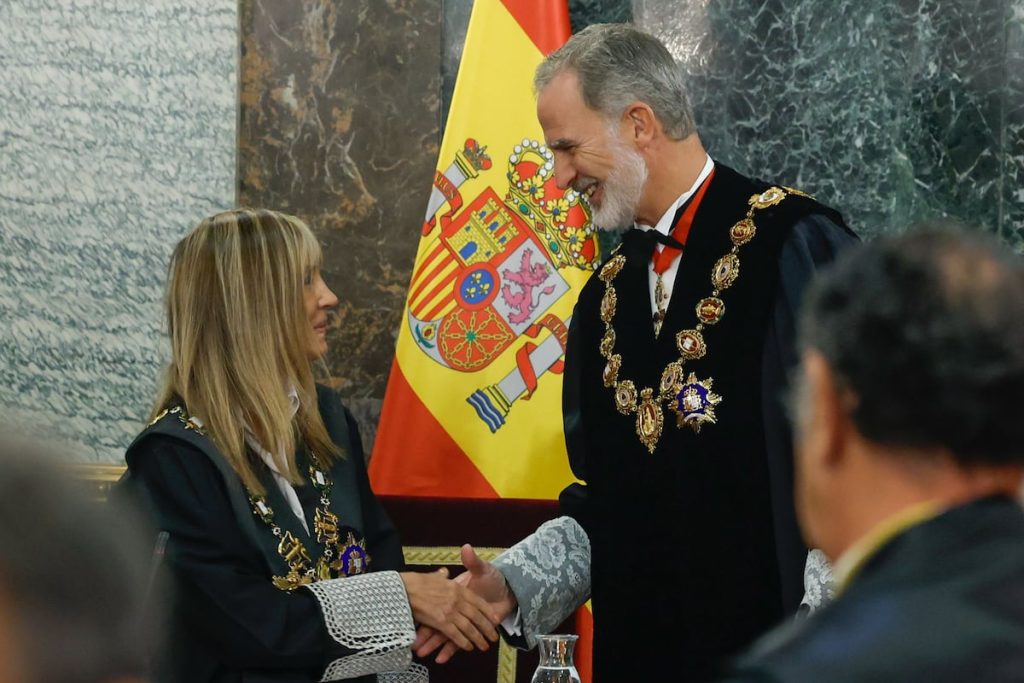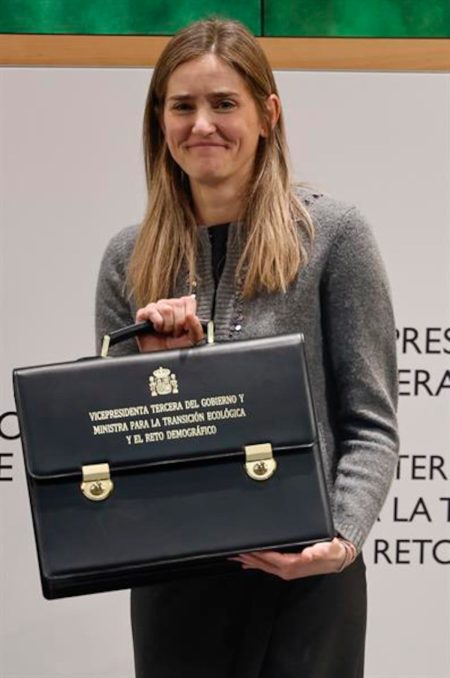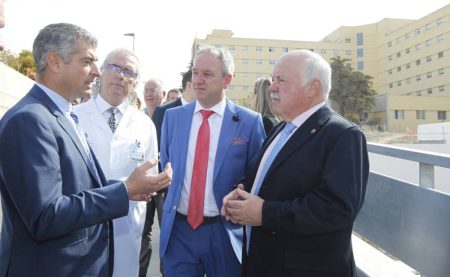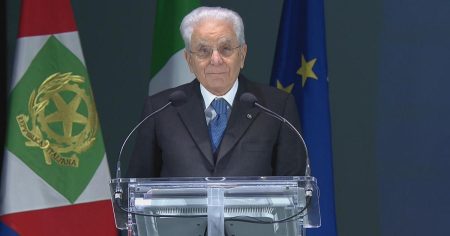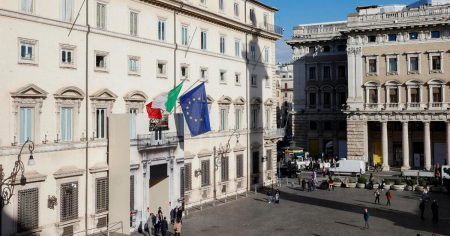For the first time since 2018, the Government of the judges attended the opening of the judicial year yesterday without an expired mandate or any legal vetoes. The newly elected members of the renewed body, chosen by Congress and the Senate in accordance with the law, attended the ceremony presided over by the King with a historic achievement under their belt: the appointment of a woman, magistrate Isabel Perelló, as president of the General Council of the Judiciary (CGPJ) and the Supreme Court. It was a glass ceiling that had remained intact for too long. Hence the relevance of Perelló’s claim in her speech about the role of women working in the Administration of Justice.
The “desolate” panorama denounced last year by her predecessor, Vicente Guilarte, due to the lack of renewal of the CGPJ, was transformed yesterday into a scenario of hope. Without limitations on functions now, the Council will soon have to address one of the main problems plaguing justice in Spain: the backlog in the courts as a result of the legal impossibility – stemming from the aforementioned blockage and now eliminated – of renewing around a hundred positions in provincial courts, higher courts, or even in the Supreme Court. This was rightfully another aspect addressed by Perelló yesterday.
The third message, directed at the political power and parties, was the demand for respect for judicial independence. As she stated, no branch of government can instruct judges on how to apply the legal system, although this does not mean, although she did not say it, that no branch, including the Judiciary, claims immunity from public criticism of its work. Therefore, it is regrettable that Perelló did not add to the demand for judicial independence, the respect for judges themselves and the impartiality that is expected of them, and that has been called into question many times in Spain.
Contributing to undermining the reputation of the Administration of Justice have been its own members. Hence, the CGPJ also faces a task not mentioned yesterday: that of restoring professional discipline so that independence from politics is, as it should be, a two-way street. The hope sparked by the Council’s renewal must not overlook the fact that the judicial right launched a year ago a war against the Legislative and Executive powers over the announcement of the processing of an amnesty law for those involved in the pro-independence movement in Catalonia.
The demonstrations by judges outside the courts against the agreement between parties on a law that had not even begun to be processed received no reproach from those who have disciplinary powers in the Judiciary, despite the law sanctioning as a serious offense the “censorship of authorities and public powers invoking the condition of judge or using that condition.” Judicial independence is not in danger – despite attempts by the political class to influence the actions of its professionals – and the amnesty law has not meant the end of democracy, as some foresaw. On the contrary, the Judiciary has shown that by applying the rules of the rule of law, it can even prevent the application of a law without the need to appeal it to higher instances, simply by forcing a creative interpretation of the legal text.
This has been done against the will of the Legislative and Executive branches, and without anyone interfering with its power to do so.









